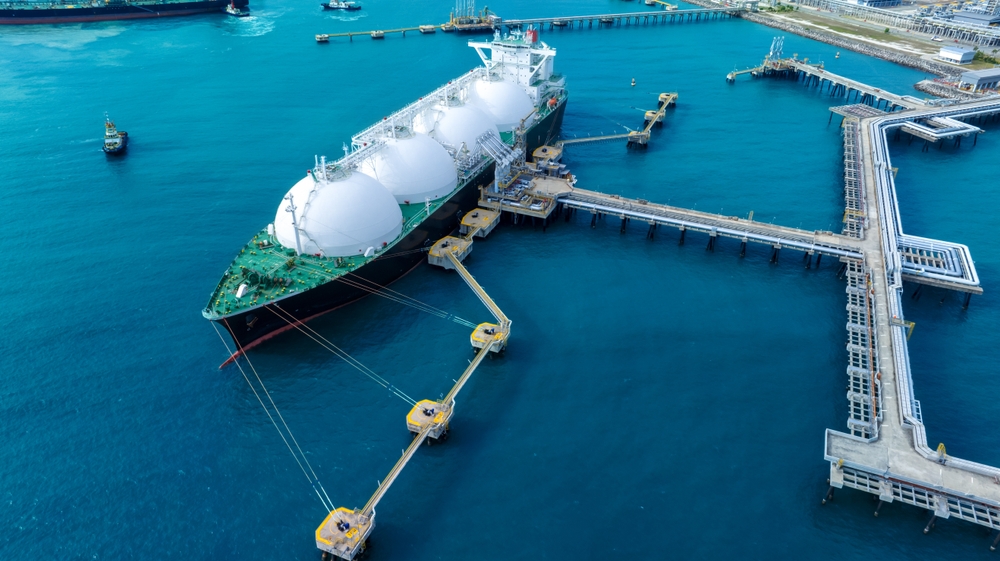The LNG terminal in Mukran on the island of Rügen is causing ongoing controversy. The entire power supply is currently based on ship generators, as a shore power connection has not been implemented. According to the Ministry of the Environment, the operator submitted the required data on air pollutants and noise on time. “Including the diesel generators,” a spokeswoman said. The review is nearing completion. Critics accuse the authority of using this to secure operations despite high emissions. (nordkurier: 12.08.25)
Ship generators instead of shore power
The German Environmental Aid (DUH) criticizes the lack of transparency. The association is demanding that Environment Minister Till Backhaus fully disclose the measured values or shut down the plant. The criticism is particularly harsh because the entire power supply is supplied by ship generators. A combined heat and power connection was originally planned, but this plan was abandoned by the operator.

The ministry extended the deadline for operation without shore power until the end of December 2025. While the existing requirements remain in place, an immediate halt is considered legally unenforceable. Instead, the authority announced retrofitting with SCR catalysts and soundproofing. The operating company, Deutsche Regas, considers operating the ship’s generators with catalysts to be more environmentally friendly than an onshore CHP plant. Critics, however, have doubts, as a shore power connection would be considerably cleaner.
Extension behind closed doors
The DUH (Duesseldorf Renewable Energy Agency) accuses the state government of a “quiet and secret” decision to continue operations and is considering legal action. “The authority must reliably examine the impacts of the industrial plant on people and the environment,” the organization stated. The plant must not continue operating without the publication of all emissions data. In particular, the dependence on ship generators significantly increases environmental pollution.
The ministry rejects the allegations, citing trade secrets. Publication of the data is currently ruled out. A decision on transparency can only be made after a legal review has been completed. A hearing with the operator has already taken place. “A decision is expected soon,” the spokesperson stated. Critics view the approach as evidence of the close ties between politicians and operators. Environmental organizations view the continued use of ship generators as a clear burden on Rügen and the entire Baltic Sea region.
